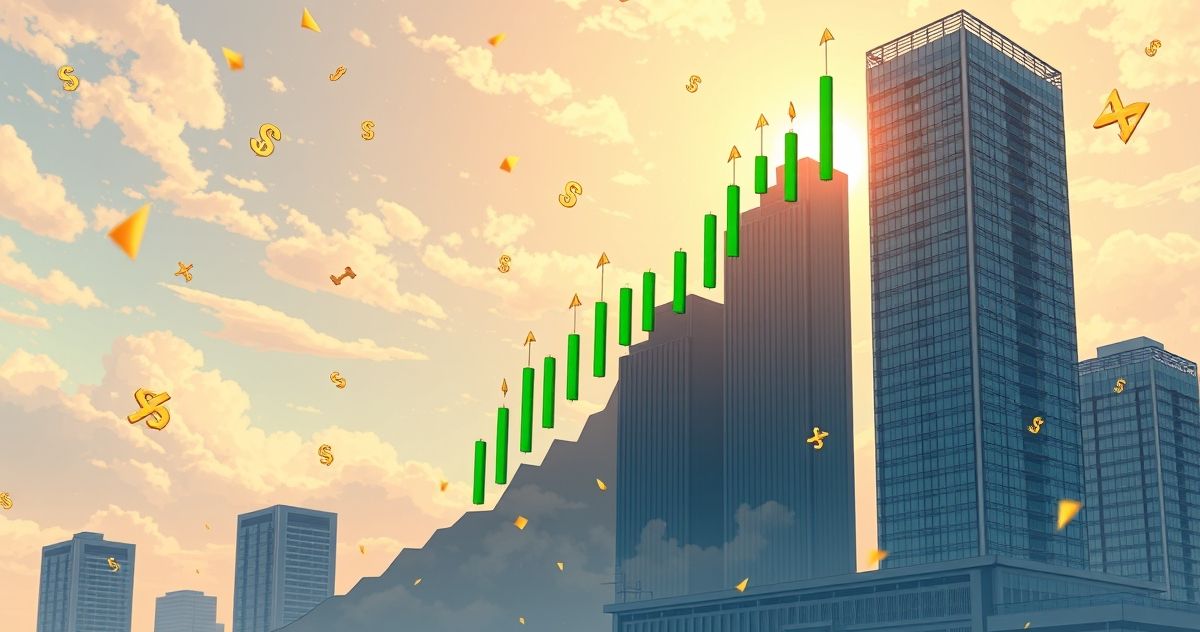
Historic Bull Run Continues in Korean Stock Market
The Korean stock market continues its remarkable rally, with the KOSPI index setting another record high on July 2nd. The benchmark index has achieved its strongest performance in 26 years, marking a significant milestone in Korean financial market history. Holding company-related stocks led the surge amid growing expectations for commercial law amendments.
Unprecedented Growth Since 1999
This year's KOSPI performance represents the most robust growth since 1999, creating optimism across the investment community. Securities firms are projecting that the index could potentially reach 4,000 points before year-end, driven by strong government support for equity market development.
The surge reflects investor confidence in President Lee Jae-myung's market-friendly policies and economic reform agenda. The administration's commitment to promoting stocks as an alternative to real estate investment has provided powerful momentum for the equity markets.
Holding Companies Drive Market Rally
The day's standout performers were holding company-related stocks, which surged on expectations of impending commercial law reforms. These companies hit daily trading limits as investors anticipated improved corporate governance and enhanced shareholder value through regulatory changes.
The proposed commercial law amendments focus on increasing transparency in holding company structures and strengthening minority shareholder protection. These reforms are expected to boost ESG management practices among Korean corporations, potentially attracting increased international investment.
Foreign and Institutional Investment Surge
A key driver of the market's upward momentum has been strong buying pressure from both foreign and institutional investors. Large-cap stocks including POSCO Holdings, LG Chem, and Korea Electric Power Corporation experienced concentrated buying activity, demonstrating renewed global confidence in Korean equities.
The influx of foreign capital reflects positive international assessment of the Lee administration's economic policies. The government's consistent pro-market stance and structural reform commitment have successfully attracted overseas investment interest.
Sector Performance Analysis
Sectoral performance showed notable differentiation, with oil and gas leading at 4.63%, followed by steel (3.86%), shipping (3.37%), automotive (2.49%), and chemicals (2.43%). However, some sectors including machinery (-3.17%) and shipbuilding (-0.76%) experienced declines.
This selective sector rotation reflects expectations for global economic recovery and improved earnings prospects for Korean companies. The strength in traditional manufacturing sectors particularly suggests improving fundamentals in the Korean economy.
Securities Industry Optimism
Major securities firms have been raising target prices across the board, citing the government's strong market-supportive policy framework. Analysts expect the combination of policy consistency, corporate earnings improvements, and dividend expansion to create sustained upward momentum.
One securities analyst commented that the Lee administration's policy consistency and implementation strength are enhancing market credibility. Particularly, structural reforms including commercial law amendments and tax system overhauls will serve as medium to long-term growth drivers.
Global Context and International Recognition
The Korean market's outperformance has gained international attention, with global investment banks upgrading their recommendations on Korean equities. The country's transition from a real estate-centric to a capital market-focused economy aligns with global investment trends favoring diversified asset allocation.
International investors particularly appreciate the government's transparent communication regarding reform timelines and policy objectives. This clarity has reduced uncertainty premiums traditionally associated with Korean market investments.
Risk Factors and Cautionary Notes
Despite the overwhelmingly positive sentiment, experts caution against excessive optimism. Global economic uncertainties and potential changes in U.S. monetary policy remain significant external risk factors that could impact market performance.
Additionally, concerns about valuation pressures are emerging as stock prices continue their rapid ascent. Market participants are advised to maintain disciplined investment approaches and consider appropriate entry timing.
Future Outlook and Investment Strategy
Market experts recommend focusing on government policy announcements and corporate earnings seasons in the near term. As dividend enhancement policies and commercial law amendment schedules become more concrete, related theme stocks are likely to maintain their upward trajectory.
For long-term success, structural improvements in the Korean stock market and enhanced global competitiveness remain critical objectives. Sustainable growth will require continued coordination between government policy initiatives and corporate self-improvement efforts.
The current bull market represents more than just numerical gains – it signifies Korea's evolution toward a more mature and globally integrated financial market system. As reforms progress and market infrastructure improves, Korea is positioning itself as an increasingly attractive destination for international investment capital.
Original: https://trendy.storydot.kr/economy/kospi-record-high-26-years


0 Comments